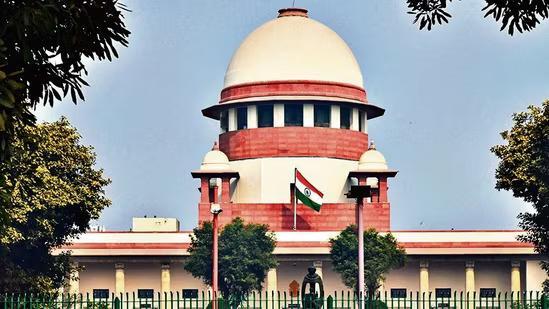
No Action Against Owners of 10 & 15-yr-old Diesel & Petrol Vehicles for 4 Weeks: SC
The Supreme Court of India has passed a significant order regarding the ban on old vehicles in Delhi as a pollution control measure. In a recent development, the apex court has ruled that no “coercive” action will be taken against the owners of over 10-year-old diesel and 15-year-old petrol vehicles in Delhi for a period of four weeks. This order was passed in response to an application filed by the Delhi government, which challenged the ban on these vehicles.
The Delhi government had moved the Supreme Court seeking a stay on the ban, which was imposed by the National Green Tribunal (NGT) in 2015. The NGT had directed the Delhi government to implement the ban in a phased manner, starting with 10-year-old diesel vehicles and 15-year-old petrol vehicles. The ban was aimed at reducing the alarming levels of air pollution in the national capital.
The Delhi government had argued that the ban would cause significant inconvenience to the public and would also lead to a surge in prices of essential commodities. It had also pointed out that the ban would not be effective in reducing pollution, as many vehicles would continue to operate on the roads despite the ban.
The Supreme Court’s order came on an application filed by the Delhi government, which sought a stay on the ban. The court heard the arguments of both the parties and then passed the order. The court ruled that no coercive action would be taken against the owners of old vehicles for a period of four weeks. This means that the owners of these vehicles will not face any action, such as fines or imprisonment, for a period of four weeks.
The court’s order is a significant relief for the owners of old vehicles, who were worried about the consequences of the ban. The court’s decision to give a four-week window for the owners to comply with the ban is seen as a pragmatic approach, as it gives them sufficient time to make alternative arrangements.
The court’s order has also been welcomed by the Delhi government, which had been opposed to the ban. The government had argued that the ban would cause significant inconvenience to the public and would also lead to a surge in prices of essential commodities. The government had also pointed out that the ban would not be effective in reducing pollution, as many vehicles would continue to operate on the roads despite the ban.
The court’s order has also been seen as a victory for the owners of old vehicles, who had been opposing the ban. The owners had argued that the ban was unjust and would cause significant financial losses to them. The court’s decision to give a four-week window for the owners to comply with the ban is seen as a recognition of their concerns.
The court’s order is also seen as a sign of the government’s willingness to listen to the concerns of the public. The government had been facing criticism for its decision to impose the ban, which was seen as a draconian measure. The court’s order shows that the government is willing to take a more pragmatic approach to the issue of pollution control.
In conclusion, the Supreme Court’s order regarding the ban on old vehicles in Delhi is a significant development. The court’s decision to give a four-week window for the owners to comply with the ban is seen as a pragmatic approach, as it gives them sufficient time to make alternative arrangements. The court’s order is also a relief for the owners of old vehicles, who were worried about the consequences of the ban. The government’s willingness to listen to the concerns of the public is also a welcome development.






